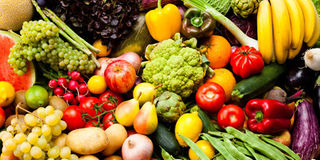What foods boost immunity against Covid-19?

With rising Covid-19 cases, what foods should we eat to boost our immunity? – Jenny
Dear Jenny
Several foods are good for our immune health. The seven categories that I find most useful are;
Cruciferous vegetables. These include cabbage, sukuma wiki, cauliflower and broccoli. These contain powerful compounds called isothiocyanates (ITCs) that are shown to reduce inflammation and boost immunity. If possible, have these as vegetable smoothies daily.
Bulb or allicin vegetables. These include garlic and onions, which contain an enzyme called alliinase that has very powerful antiviral, anti-cancer, anti-clotting and even anti-inflammatory properties. If you have ever had your eyes sting after cutting onions, the culprit is alliinase.
Mushrooms. These are immunity powerhouses. Good types include button, cordyceps and reishi. I encourage that these are eaten often, a great idea for a soup. Fruits high in Vitamin C including oranges, lemons, all citrus fruits, mangoes, guavas, pawpaw and strawberries are also good.
Red and orange foods. High in carotenoids, foods such as carrots, pumpkin, orange sweet potatoes, tomatoes, watermelon and even red bell peppers.
Spices and herbs. There are many useful immune-boosting spices including ginger, turmeric, cinnamon, cayenne pepper and garlic, as already mentioned. The best way to have them is to blend them together, add some lemon or water and make a concentrated drink. Have two to three tablespoons once or twice daily.
Other useful spices include oregano and sage. Herbs too have extremely potent immune-boosting properties. The ones I recommend include bitter leaf (mululuza), ginseng, aloe vera, hibiscus, echinacea and elderberry.
Antioxidant-rich foods. There are many in this category but the three I will point out include green tea and in particular matcha tea, dark berries such as blue and blackberries as well as dark chocolate, which is rich in cocoa and has potent anti-inflammatory and immune protecting effects. A great treat for your immune and cardiovascular health.
Disclaimer
This information is not medical care and no doctor-patient relationship is created by this use of the information. Content in this section is not a substitute for medical advice, diagnosis, treatment, or care from your physician. This information is not a substitute for a formal diagnosis, physical examination, or prescription and should not be used to treat a medical condition. Do not ignore or delay obtaining professional medical advice because of information accessed here. Please see your doctor in person if you are looking for a personal medical evaluation, diagnosis, prescription, or treatment.




